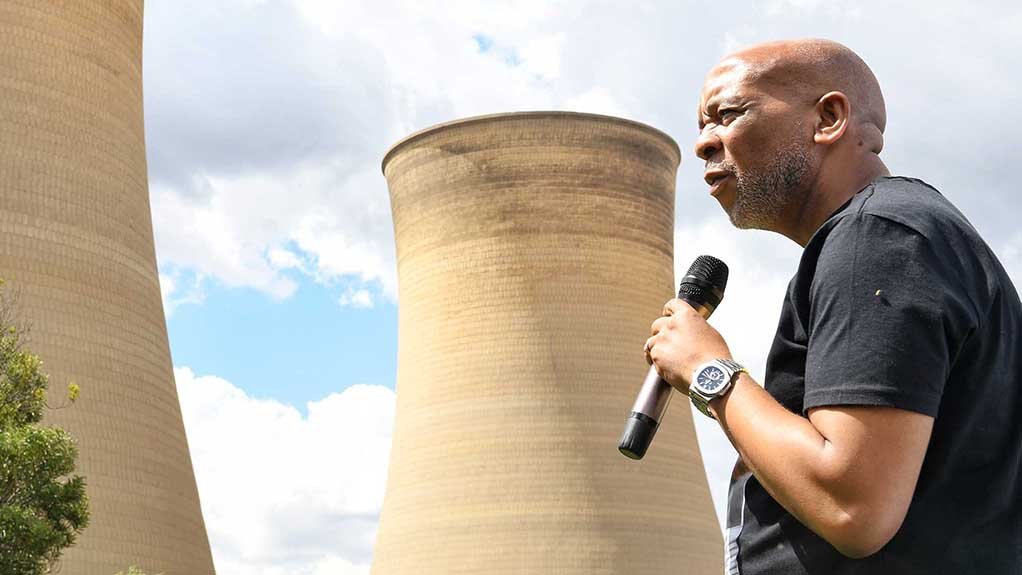Electricity Minister Dr Kgosientsho Ramokgopa reports that “open and frank” discussions have been held with those countries that have agreed to extend $8.5-billion in concessional funding to support South Africa’s transition from coal to renewables about the possibility of delaying the decommissioning of certain coal-fired power stations in light of ongoing loadshedding.
Speaking during a briefing on the implementation of the Energy Action Plan, Ramokgopa reported that meetings with representatives of the International Partners Group (IPG) that make up the Just Energy Transition Partnership (JETP) had included himself, as well as Public Enterprises Minister Pravin Gordhan and Forestry, Fisheries and the Environment Minister Barbara Creecy.
He said South Africa had explained its position regarding the review of the decommissioning schedule in light of intense power cuts, as well as the fact that some of the units that were approaching their dead-stop dates were performing better than some of Eskom’s newer plants.
The Minister again made specific reference to the Camden power station, arguing that there was potential to sustain 420 MW of capacity for a longer period by delaying the decommissioning of three 140-MW units, which were approaching retirement.
“As we speak, we are short of megawatts, and if you look at Camden, it is consistently within the top five performing power stations, so I don't think that it helps us to decommission those high-performing units.”
He stressed that the decision would be made only after an assessment had been made regarding the cost and emission implications, as well as how the delay could be implemented without deviating from the overall decarbonisation commitment South Africa had made through the Nationally Determined Contributions that triggered the JETP in the first place.
During the meeting with the IPG representatives, the South African Ministers reportedly reaffirmed the country’s commitment to decarbonising its coal-heavy electricity industry without increasing the intensity of loadshedding in the short term.
“The emphasis was that, as we decarbonise, we decarbonise in an environment where the lights are on,” Ramokgopa said.
He reported that he had also had a separate meeting with Germany’s special envoy for South Africa’s JETP, Rainer Baake, where the country’s position regarding decommissioning was again outlined and where an offer of specific technical support had been made by Baake.
The Presidency’s Rudi Dicks, who heads the National Energy Crisis Committee (NECOM) Secretariat highlighted that any update to the decommissioning schedule would be made only following a “careful and thorough process” that would include a cost comparison of refurbishing older coal stations with that of investing in replacement capacity.
He said any revision would be informed by the following:
- A technical assessment, which was currently under way by a team appointed by the National Treasury, of the feasibility of refurbishing and/or repowering the stations;
- A NECOM modelling of projected future capacity compared with existing capacity and expected demand growth; and
- A modelling of the impact on the country’s decarbonisation trajectory, which would involve the Presidential Climate Commission.
“This exercise is expected to be completed by July 2023 and the outcome will be presented to Cabinet,” Dicks reported, adding that no units would be decommissioned until the assessment was complete.
EMAIL THIS ARTICLE SAVE THIS ARTICLE ARTICLE ENQUIRY
To subscribe email subscriptions@creamermedia.co.za or click here
To advertise email advertising@creamermedia.co.za or click here











